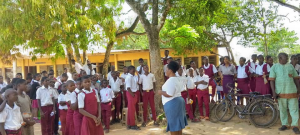By Iwuozuzu Kelechi
In many rural communities, adolescents face significant barriers in accessing sexual and reproductive health services. For young people navigating crucial life changes, the lack of accessible, reliable care feels like a mirage—visible but frustratingly out of reach.
Barriers to Access
Healthcare facilities in these areas are often few and far between, requiring long travels to receive basic services. Moreover, cultural beliefs about sexuality can create stigma, deterring young people from seeking help due to fear of judgment from peers or families.

Consequences of Inadequate Care
The absence of accessible health services has serious implications. Adolescents in rural settings often experience higher rates of unintended pregnancies and sexually transmitted infections. Additionally, the lack of mental health support related to sexual health issues can lead to increased anxiety and emotional distress.
Community-Based Solutions
Despite these challenges, community-based approaches can foster positive change. Engaging local leaders, educators, and healthcare providers can create safe spaces for discussions on sexual health. Innovative solutions like mobile health units and telehealth services can bridge gaps in access, while tailored educational programs empower young people with the knowledge to make informed decisions.
Access to adolescent sexual and reproductive health services in rural communities should not be a mirage. By addressing systemic barriers and investing in community-centered solutions, we can ensure that every young person has the resources they need for a healthy future. Investing in their sexual and reproductive health is an investment in the well-being of society as a whole and, as such, should form part of the discussions at the UNCSW69.

IWUOZUZU KELECHI is a Program officer for MULTIPLE BIRTH FOUNDATION